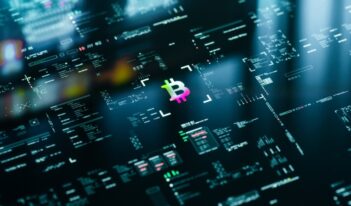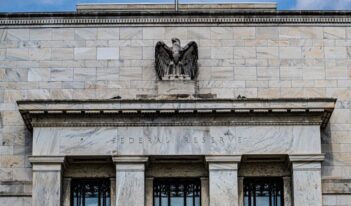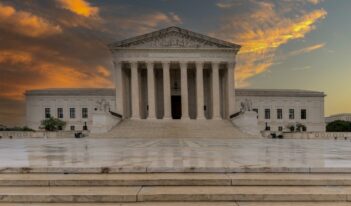
A federal court ruling revives questions about the insulation of independent agencies.
The Consumer Financial Protection Bureau’s (CFPB) single-director structure is unconstitutional, according to a recent ruling in the U.S. Court of Appeals for the D.C. Circuit. In the case, PHH Corporation v. CFPB, a three-judge panel reasoned that leaders of independent agencies, like the CFPB, are removed from oversight by the President and thus pose an increased threat to liberty. That, coupled with the fact that the CFPB is run by a single director, they said, puts too much unchecked power in the hands of one person.
Congress established the CFPB in 2009 to protect consumers from unfair practices. It designated the CFPB as an independent agency, meaning the agency’s director could not be fired by the President for political reasons, or “without cause.”
That set-up was intentional. Congress designs independent agencies to be isolated from political influence in order for those organizations to better serve the public interest. For example, the U.S. Federal Reserve System, which regulates the money supply, and the Federal Trade Commission, which ensures market competition, are two independent agencies that are expected to carry out their missions apolitically.
But are these independent agencies actually independent from influence by the President, Congress, or interest groups? U.S. Court of Appeals Judge Brett Kavanaugh, writing for the court majority in PHH Corporation, suggests that they are. But scholars continue to debate this question.
Independent agencies are, in theory, designed to be isolated from political and presidential pressures. Leaders of independent agencies can be dismissed only “for cause,” whereas their counterparts in non-independent agencies can be fired for any policy differences. This set-up was originally intended to insulate independent agencies from presidential influence and to allow for reasoned expert opinion to prevail over undue political pressures. In his opinion, Judge Kavanaugh argues that this insulated structure contributes to the CFPB being “unchecked by the President.”
Some evidence suggests that independent agencies are, in fact, independent from presidential influence. They produce far fewer “midnight regulations”—regulations published at the very end of an outgoing President’s term—than do their non-independent counterparts, suggesting that the agencies are in less of a hurry to pass rules before a new administration takes over. And the Federal Reserve apparently acts independently enough that members of Congress have recently issued complaints about a lack of oversight.
On the other hand, independent agencies’ behavior shifts as administrations change, although whether this is due to presidential influence is disputed. It might, for example, be the result of agency heads already agreeing with the President, even absent any direct influence.
To further complicate this question, the dichotomy of agency independence might be a false one. Congress draws a clear distinction between leaders who can be fired for cause and those who serve at the pleasure of the President. But some scholars argue that agency independence actually exists along a continuum.
Even though an independent agency is free from presidential influence, it might still fall under the control of Congress, which often sets its budget and can call hearings on the agency’s operations. Some commentators argue that independence from the President brings agencies closer to Congress’s sphere of influence.
A recent paper by University of Chicago Law School Professor Brian D. Feinstein, however, provides evidence that Congress is less likely to exercise its oversight over agencies with typically independent characteristics. His research suggests that these agencies are more independent from Congress, as well as the President, than the agencies without these characteristics. Although he does not expansively speculate as to why this might be, Professor Feinstein posits that some of the independent agencies’ “design features”—like fixed terms for leaders—might insulate them from Congressional pressure.
Independence from the political branches, even if it exists, might not lead to positive policy outcomes. While independence from political influence theoretically frees independent agencies to make decisions based on expertise, it might also perversely make them more susceptible to capture by interest groups.
Cass Sunstein, a professor at Harvard Law School, has argued that a non-independent agency’s ties to the President can provide cover from interest group influence. Because non-independent agencies’ leaders can be dismissed by the President at any time, these agencies’ officers may act in the interest of the President instead of interest groups. Conversely, according to Sunstein, independent agencies become “susceptible to factional power” by the particular interests of Congress and regulated industries. Rachel E. Barkow has documented how one independent agency—the Consumer Products Safety Commission—fell under the influence of the very industries it was meant to regulate. This occurred for a number of reasons, including Congressional underfunding and a disparity in resources between industry and consumer protection groups.
Although independent agencies are almost always led by groups, Congress designated a single director to lead the CFPB. The D.C. Circuit panel in PHH Corporation was concerned that this single-leader arrangement exacerbated the problem of unchecked power that allegedly already exists for independent agencies. As the D.C. Circuit wrote in relation to the CFPB, “no independent agency exercising substantial executive authority has ever been headed by a single person. Until now.”
In its ruling, the D.C. Circuit allowed the CFPB to continue operating as long as its director can be removed without cause—that is, as long as it begins functioning as a non-independent agency. The goal of this remedy rests on the premise that non-independent agencies will act more inside the purview of political authority and restraint. But whether the CFPB will now be more or less influenced by the President, Congress, and regulated industries depends on how independent independent agencies really are. This case will likely be appealed, and so both the case and the question of agency independence will continue to be debated.



